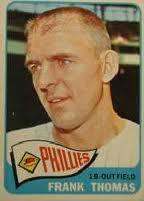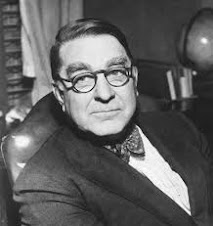First up:
September Swoon: Richie Allen, the ’64 Phillies, and Racial Integration, by William F. Kashatus, published in 2004.
This book was the only one to arrive sealed in plastic, which I took to mean that it has not been a big seller. In checking the publication date, I found it interesting that the Pennsylvania State University Press is the publisher.
The 1964 Phillies (of course) were the team that claimed the dubious distinction of having the worst meltdown in a pennant race of all time, when they lost a 6.5 game lead, with 12 games left in the season. I still think this one is the 2nd best of the worst ever, as recent collapses by Boston this season, and the Mets and Angels of more recent vintage were not choke-jobs that cost a pennant, and the best of the worst is still the Brooklyn Dodgers of 1951.
The author (Kashatus) was 5 years old when his hometown Phils folded down the stretch. The Cardinals got hot and slipped past the Giants and Reds, along with Philadelphia to win it. The author was able to enlist the help of many players from the ’64 team in his telling of the story. He also did some excellent research, and spoke with some of the writers that had covered the team.
The racial element is discussed throughout, and it is very important to note that Dick Allen was the first super-star African-American ballplayer the Phils signed. He received a very large ($70,000) bonus for the time, and was one of the best hitters in all of MLB immediately. Certainly, in 1964, he was a hero, and the NL Rookie of the Year, but the team’s failure that season in many ways made Allen the focal point of Phillies fans ire in later years, when the team continued to fail.
Kashatus writes at length of the blame Allen took in subsequent years for the team’s failures, but the fact is that in 1964 it was Manager Gene Mauch’s fault that the Phils lost, as anything else. Mauch’s use of his two top starting pitchers (Jim Bunning and Chris Short) almost exclusively in the last two weeks proved to be a fiasco, and the team couldn’t hit enough to grab a win in 10 straight games. Mauch "just wore the pitching out" in his own words, but remained manager for a few more years, and instrumental in trading young players for veterans that were never as good as they’d been. The team got worse as Dick Allen got better.
Allen was a Pennsylvania kid, from a single parent family. His mom raised Dick and his two brothers as many moms did back then – with love, discipline, hard work, and the church. Both of Dick’s brothers ended up playing in the majors, but Dick was the star. The Phillies signed Allen and sent him to Little Rock, Arkansas to play his first year of pro ball, where he was the first and the only black player to play for the team. This was in 1960, and Allen went through all the horrible abuse and death threats others before him had experienced, yet he still managed to lead the league in total bases. He couldn’t understand why Philadelphia would send him to Arkansas.
Of course at this same time, Philadelphia was a very oppressive and racist city, in part due to the policies of the police force. It was also true that there had been a large in-migration of Southern Blacks for a number of years. The reaction of a large segment of the white population was all too typical for the 1960’s, when racial equality was something people were fighting and dying for in this country, and the white folks didn’t like all those black folks – at least not so close. The difference was the hatred was often more subtle up north, but in Philadelphia, it became palpable.
Early in 1965, the year after Philly’s collapse, Allen and (teammate) Frank Thomas (a veteran white MLB player) had a small scrum on the field before a game. It became huge news because it was precipitated by a racist remark Thomas had made to Allen. Allen stated he was tired of Thomas’s BS, and his harassing of young black players on the team. Allen was mentoring the younger guys and standing up for them, remembering how tough he’d had it in Little Rock. Thomas was a notorious jerk, and most of the players Kashatus spoke with speak to all of this to some degree. Fact was that Thomas wasn’t called "Donkey," because he was a genius. Thomas was soon shipped off, and the spot light shined on Dick Allen, who took the blame for everything that went wrong in Philadelphia from that point forward.
 |
| Philly fans pelting Santa |
Dick Allen was an amazingly talented hitter and athlete. He was extremely powerful, and often swung a 40-ounce bat, maybe the last man to have used a bat that heavy. I was a huge Met fan back then, and was always terrified when Allen came up to bat against my team. All that talent didn’t matter anymore, Allen was a problem, and would be booed, blamed, and harassed.
Not long after the Thomas incident, life got too heavy for Allen, and he grew to hate Philadelphia. He wanted to be traded away, and he started to drink too much at times. Injuries came along, with most everyone in the media skeptical regarding their severity or even their existence?
Allen was miserable, and even allowing for the errors in judgment and action that he admits to having made, it was sad ending to what should have been a long and great career in the City of Brotherly Love. Allen went on to play a number of years with other teams, and won the AL MVP with the White Sox in 1972. He actually came back to Philadelphia to play in 1975-76, and made it to the post-season that last year in Philly, then ended his career in Oakland, after the 1977 season. He has never received much support for the Hall of Fame, but I can say with absolute confidence that he was as good a hitter as anyone I have ever seen in baseball, for about 5 or 6 years.
Kashatus is not a great writer, but he is a pretty fair one, and he covers his subject matter well. His is not an easily flowing narrative, but his book has historical value of a time, a place, a team, and a man (Allen). It is a story well worth knowing for any baseball fan.




















No comments:
Post a Comment